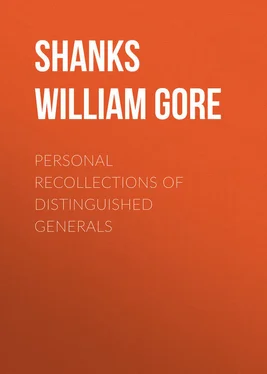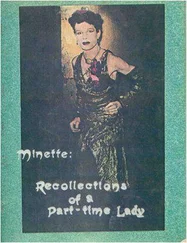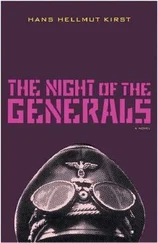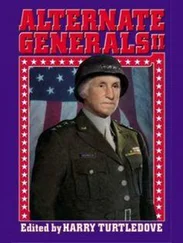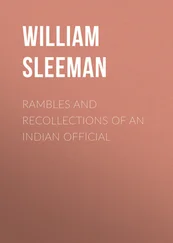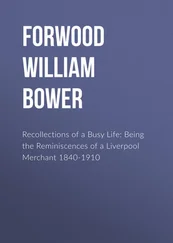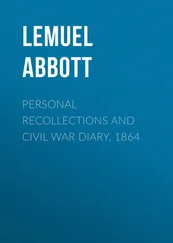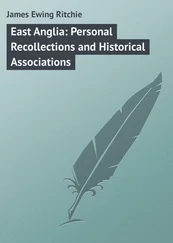William Shanks - Personal Recollections of Distinguished Generals
Здесь есть возможность читать онлайн «William Shanks - Personal Recollections of Distinguished Generals» — ознакомительный отрывок электронной книги совершенно бесплатно, а после прочтения отрывка купить полную версию. В некоторых случаях можно слушать аудио, скачать через торрент в формате fb2 и присутствует краткое содержание. Жанр: foreign_antique, foreign_prose, на английском языке. Описание произведения, (предисловие) а так же отзывы посетителей доступны на портале библиотеки ЛибКат.
- Название:Personal Recollections of Distinguished Generals
- Автор:
- Жанр:
- Год:неизвестен
- ISBN:нет данных
- Рейтинг книги:5 / 5. Голосов: 1
-
Избранное:Добавить в избранное
- Отзывы:
-
Ваша оценка:
- 100
- 1
- 2
- 3
- 4
- 5
Personal Recollections of Distinguished Generals: краткое содержание, описание и аннотация
Предлагаем к чтению аннотацию, описание, краткое содержание или предисловие (зависит от того, что написал сам автор книги «Personal Recollections of Distinguished Generals»). Если вы не нашли необходимую информацию о книге — напишите в комментариях, мы постараемся отыскать её.
Personal Recollections of Distinguished Generals — читать онлайн ознакомительный отрывок
Ниже представлен текст книги, разбитый по страницам. Система сохранения места последней прочитанной страницы, позволяет с удобством читать онлайн бесплатно книгу «Personal Recollections of Distinguished Generals», без необходимости каждый раз заново искать на чём Вы остановились. Поставьте закладку, и сможете в любой момент перейти на страницу, на которой закончили чтение.
Интервал:
Закладка:
In a conversation of importance, and particularly on a battle-field, he seldom gives a person time to finish his remarks or reports. He replies as soon as he has heard enough to convey the idea, never waiting its elaboration. In giving his instructions and orders, he will take a person by the shoulder and push him off as he talks, following him to the door, all the time talking and urging him away. His quick, restless manner almost invariably results in the confusion of the person whom he is thus instructing, but Sherman himself never gets confused. At the same time, he never gets composed. Under all circumstances, he is thus restlessly, never timidly nervous. In danger the restlessness is not so visible, and hence it is apparent that there is nothing of timidity in it. On the battle-field where he commands Sherman's nervous manner is toned down. He grates his teeth, and his lips are closed more firmly, giving an expression of greater determination to his countenance. His eyes are somewhat closed, as if endeavoring to see the furthermost limits of the battle-field, and, as it were, peer into the future and see the result. His cigar is always kept firmly between his lips, but he suffers its fire occasionally to die out. He is less restless of body; his arms are more confined to their proper limits; and he is content to stay in one spot. He talks less at such moments than at calmer ones. On light occasions, however, he is invariably ill at ease. His fingers nervously twitch his red whiskers – his coat buttons – play a tattoo on his table or chair, or run through his hair. One moment his legs are crossed, and the next both are on the floor. He sits a moment, and then rises and paces the floor. He must talk, quick, sharp, and yet not harshly, all the time making his odd gestures, which, no less than the intonation of his voice, serve to emphasize his language. He can not bear a clog upon his thoughts nor an interruption to his language. He admits of no opposition. He overrides every thing. He never hesitates at interrupting any one, but can not bear to be interrupted himself. He is very well aware, and candidly admits that his temper is uncommonly bad, and, what is worse, he makes no attempt to control or correct it. In speaking of the late General McPherson, of the Army of Tennessee, he once remarked, "He is as good an officer as I am – is younger, and has a better temper." Grant, once speaking of Sherman's peevishness, said, "Sherman is impetuous and faulty, but he sees his faults as soon as any man." The fact is, if Sherman's faults alone could be given to another, they would serve to distinguish him from the common herd.
The idea generally prevails that commanding generals are very didactic on the battle-field, and give their orders in precise language and stentorian voice. A little familiarity with actual war will soon dispel this false impression, particularly if you meet Sherman on the battle-field, for there is less of dignity, display, and grandiloquence in him than any other general whom I have met during the war. At the battle of Chattanooga he gave his orders for the advance of his troops against the enemy's strongly fortified position to his brother in law, General Hugh Ewing, in the words uttered between two puffs at a bad cigar: "I guess, Ewing, if you are ready, you may as well go ahead." Ewing asked a few questions in regard to retaining the échelon formation of his command as then marshaled for the advance. Sherman replied, "I want you to keep the left well toward the river (the Chickamauga), and keep up the formation four hundred yards distance, until you get to the foot of the hill."
"And shall we keep it after that?" asked Ewing.
"Oh, you may go up the hill as you like," said Sherman; and then he added, sotto voce , with a smile and a wink to his aid, and General Ewing's brother, Charley Ewing, who stood near by, "if you can." As General Ewing was mounting his horse and about to leave, Sherman called out to him,
"I say, Ewing, don't call for help until you actually need it." General Frank Blair, and others of the Army of the Tennessee who were standing near Sherman, laughed at this in such a manner as left the impression on the minds of others, as well as myself, that on some former occasion General Ewing had called for help before General Sherman thought that he really needed it.
It is recorded of Sherman that, on witnessing from the top of a rice-mill on the Ogeechee River the capture of Fort McAllister by General Hazen's forces, and the successful termination by that capture of the "march to the sea," he exclaimed, imitating the voice of a negro, "Dis chile don't sleep dis night," and hurried off to meet General Foster and complete the junction of the two armies.
His nervousness is not less perceptible in his writings than in his conversation and manners. His writings lack in elegance, but not in force. Some of his letters, remarkable for absence of grace and presence of vigor, are already accepted as among the model documents of the war, not only as to style, but as to argument. His speeches, letters, and orders are seldom more than skeletons, framed of sharp, pointed, but disjointed sentences, from which the ideas to be conveyed protrude so prominently as to be comprehensible when the sentence is but half conveyed. His ideas are never elaborated in his letters, though given more fully than in his conversations, but you never have to finish the sentence to discover its meaning. There are several specimens which every reader will naturally think of in this connection. His letter to the rebel General Hood on the proposed depopulation of Atlanta is a curious document, an impromptu reply, thrown off-hand from his pen, and it reads as if it were Sherman talking. He begins this letter by acknowledging the receipt of a communication at the hands of "Messrs. Bull and crew ." The bearers, who were designated by this undignified title, were members of the Common Council of Atlanta, for whom Sherman does not appear to have entertained the most profound respect. The letter ends by advising Hood to tell his tale of oppression "to the marines," as he (Sherman) is not to be imposed upon. In the same correspondence he indicates his action in depopulating Atlanta, and gives his peculiar "theory of suppression." Sherman's whole theory, in which, by the way, he has been consistent from the first, is embraced in the proposition to "fight the devil with fire." He was for vigorous war all the time – hard blows at the organized armies, frequent and oft repeated. He has none of the elements of Fabian in him. He writes in defense of the action at Atlanta alluded to: "We must have peace, not only in Atlanta, but in all America. To secure this, we must stop the war that now desolates our once happy and favored country. To stop war, we must defeat the rebel armies that are arrayed against the laws and Constitution, which all must respect and obey. To defeat these armies, we must prepare the way to reach them in their recesses provided with the arms and instruments which enable us to accomplish our purpose." His expression in the same letter, "War is cruelty – you can not refine it," is a sharp, terse rendition of an undisputed truth, to the illustration of which whole chapters have been less successfully devoted by more distinguished writers.
While endeavoring to fill up his dépôts at Chattanooga and Knoxville preparatory to the campaign against Atlanta, Sherman was asked by members of the United States Christian Commission for transportation for their delegates, books, tracts, etc., for the army. His reply is very characteristic of the man: "Certainly not," he wrote; "crackers and oats are more necessary to my army than any moral or religious agency." As this incident shows, Sherman is not a very firm believer in the utility of Christian or Sanitary Commissions, or aid societies generally. He thinks female nurses about a hospital or an army a great nuisance. He once alluded contemptuously to the efforts of a large number of ladies at Louisville, Kentucky, to send clothing, lint, sweetmeats, etc., to his troops, but was induced, in lieu of discouraging their efforts, to take steps to properly direct them. He met the ladies by agreement in one of the public halls at Louisville, now known as Wood's Theatre, and made an address to them. He went among the lambs with all the boldness and dignity of a lion; but the rough, uncouth manner of him who had frowned on thousands of men melted in the presence of a few hundred ladies. They found that, though "he was no orator as Brutus is," he could talk very tenderly of the soldier's wants, very graphically of the soldier's life and sufferings, and very gallantly of woman and her divine mission of soothing and comforting.
Читать дальшеИнтервал:
Закладка:
Похожие книги на «Personal Recollections of Distinguished Generals»
Представляем Вашему вниманию похожие книги на «Personal Recollections of Distinguished Generals» списком для выбора. Мы отобрали схожую по названию и смыслу литературу в надежде предоставить читателям больше вариантов отыскать новые, интересные, ещё непрочитанные произведения.
Обсуждение, отзывы о книге «Personal Recollections of Distinguished Generals» и просто собственные мнения читателей. Оставьте ваши комментарии, напишите, что Вы думаете о произведении, его смысле или главных героях. Укажите что конкретно понравилось, а что нет, и почему Вы так считаете.
